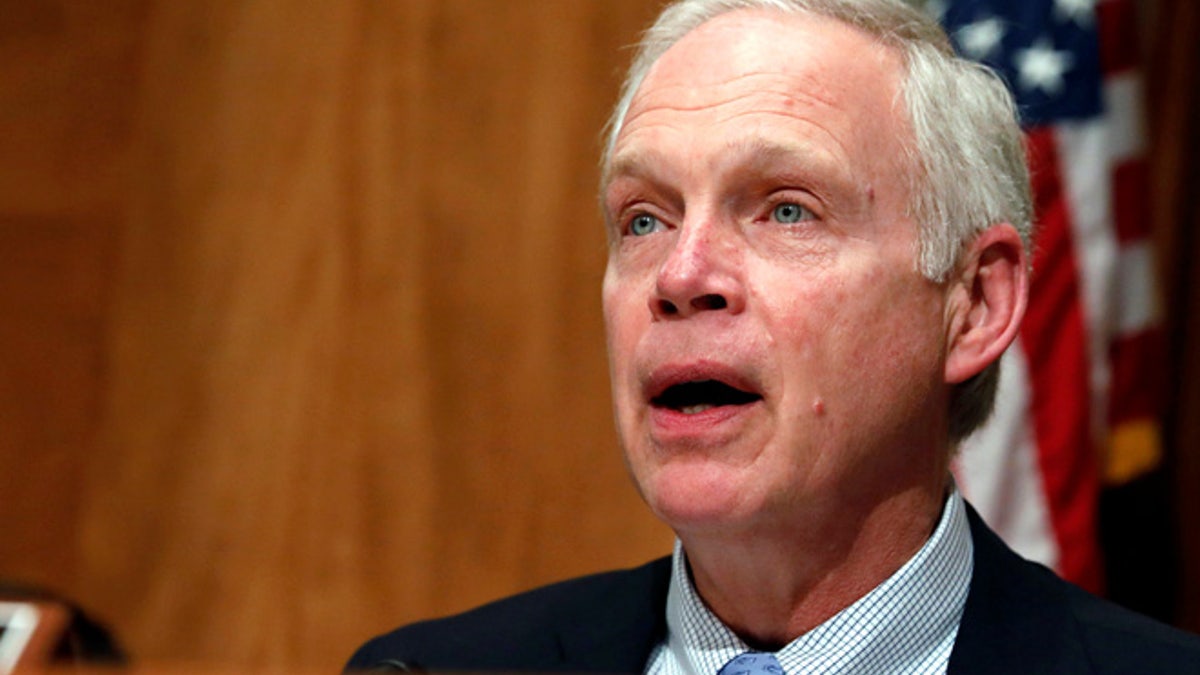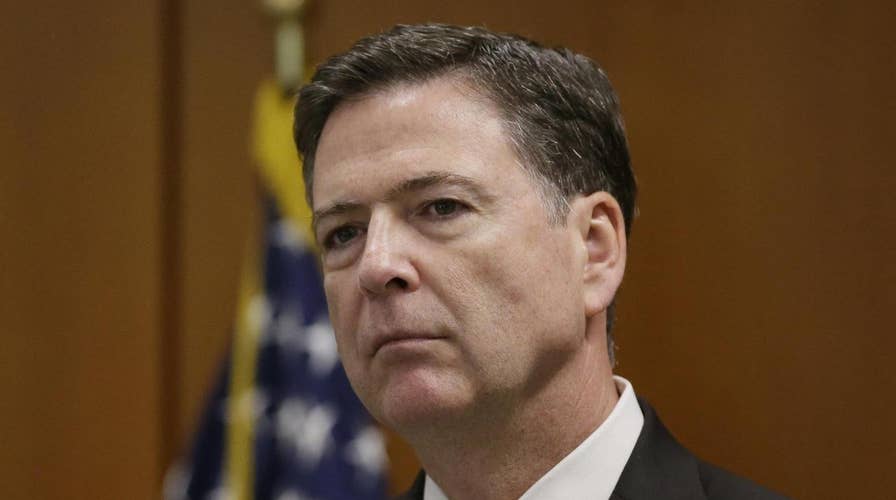Did Comey break the law by exonerating Clinton?
James Kallstrom and Jay Sekulow discuss the revelation on 'Hannity'
Sen. Ron Johnson is demanding full transcripts from interviews the Office of Special Counsel conducted with former FBI staffers for James Comey, becoming the latest lawmaker to dig deeper after the documents raised questions about the bureau’s handling of the Hillary Clinton email case and the ex-director’s statements to Congress.
The White House on Monday accused Comey of giving “false testimony,” and Sen. Lindsey Graham, R-S.C., told Fox News last week he wants Comey to return to Capitol Hill – saying “I smell a rat.”
Johnson, R-Wis., chairman of the Senate Homeland Security and Governmental Affairs Committee, made his request for the full, un-redacted transcripts in a letter to Acting Special Counsel Adam Miles.

Chairman Senator Ron Johnson (R-WI) speaks prior to Homeland Security Secretary John Kelly testifying before a Senate Homeland Security and Governmental Affairs hearing on border security on Capitol Hill in Washington, D.C., U.S., April 5, 2017. REUTERS/Aaron P. Bernstein - RTX348HM (REUTERS)
“The Committee has conducted oversight of the FBI’s investigation into Secretary Clinton’s use of a private email system. The information in OSC’s possession could further explain the scope, course, and nature of the FBI’s investigation,” Johnson wrote on Sept. 8.
The transcripts were from interviews conducted by the OSC with James Rybicki, Comey’s former chief of staff, and Trisha Anderson, the principal deputy general counsel of national security and cyber law. The Senate Judiciary Committee earlier received redacted transcripts of the interviews, revealing last month that they include claims that Comey “wrote a draft” of an "exoneration statement" for Clinton around early May 2016.
This would have been well before the bureau's early July interview with Clinton.
NEW PRESSURE ON COMEY TO RETURN TO CAPITOL HILL, AS WHITE HOUSE ACCUSES HIM OF 'FALSE TESTIMONY'
Johnson said the full transcripts “may shed light” on the FBI’s decision-making process during their investigation, the FBI’s interactions with other federal entities, and the FBI’s “distinction” between “extreme carelessness” and “gross negligence,” when referring to Clinton’s handling of her private email server.
Comey ultimately accused Clinton of being extremely careless in her handling of her personal email and server while secretary of state, but recommended against criminal charges. The claim that he drafted an exoneration statement weeks before Clinton was interviewed, however, raised questions about the bureau's handling of the case -- and about Comey's prior testimony.
Comey in June said one of the big reasons he spoke out on the case was concern over then-Attorney General Loretta Lynch’s infamous meeting days earlier on an Arizona tarmac with former President Bill Clinton. He also testified a year ago that he made the decision not to seek charges after the Clinton interview.
Some Republicans want Comey to return to Capitol Hill to testify and clarify his past statements. Just Monday, the White House slammed Comey’s testimony as “false.”
The interviews with Rybicki and Anderson were part of an OSC investigation into whether Comey violated the Hatch Act in October 2016. Richard Painter, former White House chief ethics lawyer for President George W. Bush, requested an investigation after complaining that Comey may have influenced the election by telling Congress in late October that the bureau was revisiting the Clinton email probe.
Due to longstanding OSC policy, the only punishment from such a probe could be termination. So after President Trump fired Comey in May, the OSC investigation ended.
During that investigation, though, the OSC signed non-disclosure agreements with the FBI, giving them the privilege of redacting protected information. Those non-disclosure agreements bar the OSC from turning over any documents to Congress without permission from the FBI, despite Johnson’s committee having jurisdiction over the watchdog agency.
However, Johnson contends that, “Any reliance upon these non-disclosure agreements to withhold information from the Committee would be inappropriate.”
Johnson gave a deadline of Sept. 21 for the OSC to provide full transcripts, documents, and details regarding their investigation into Comey.
Both the FBI and the OSC told Fox News they had “no comment” on the interviews or on why portions of the transcripts have been redacted.













































